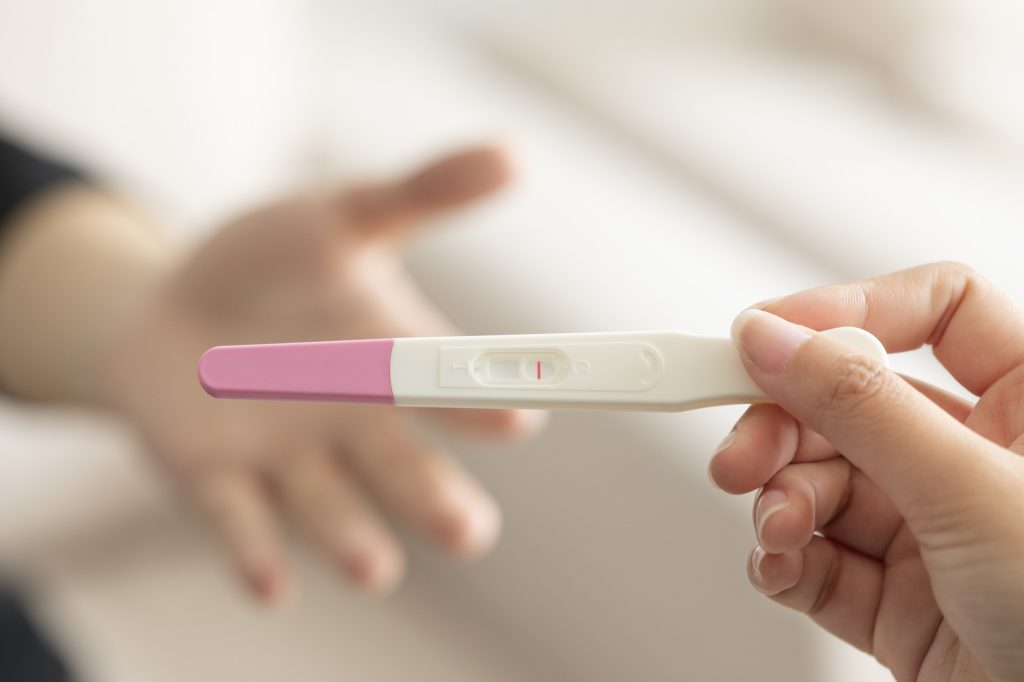Understanding Ovulation Tests
An ovulation test is a simple, at-home method used to pinpoint the days when a woman is most likely to be fertile (source). These tests detect a surge in luteinizing hormone (LH), which occurs just before ovulation. Understanding when ovulation occurs can help in planning for pregnancy or in using contraceptives to prevent it.
Key points about ovulation tests:
- Accuracy: They are generally reliable but can vary based on individual hormonal patterns.
- Limitations: May not work well for those with irregular cycles or certain health conditions affecting hormones.
By informing women about their fertile window, ovulation tests play a pivotal role in reproductive health decisions, including the choice of contraceptives.
Understanding Fertility Monitors
Fertility monitors offer a more advanced, though typically more expensive, way to track fertility. These devices assess multiple indicators of fertility, including basal body temperature and hormone levels in urine (source).
Types and costs:
- Types: Vary from simple temperature-based monitors to advanced hormone-detecting units.
- Cost: Generally higher than ovulation tests but can be a worthwhile investment for more detailed fertility tracking.
These monitors can guide users on both avoiding and achieving pregnancy, making it a versatile tool in managing reproductive health.
Comparative Analysis
Comparing ovulation tests and fertility monitors shows different strengths suited to various needs:
- Accuracy: Monitors are typically more accurate due to tracking more variables.
- Cost: Ovulation tests are cheaper and thus more accessible to a broader audience.
- Ease of use: Ovulation tests are simpler to use with less data to interpret.
Accessibility and Resources
In the context of the Philippines, accessing reliable ovulation tests remains easy and convenient.
These kits are widely available in most drugstores, supermarkets, and even online platforms, making them accessible to women wherever they are in the country. A lot of brands offer affordable options, while others provide more advanced digital testing for those who prefer added accuracy.
TRUST offers the Bloom Ovulation Test Kit, a dependable and easy-to-use choice for Filipinas who want accurate results without the high cost of advanced monitors. Its accessibility and reliability make it an ideal companion for those looking to track their fertility with confidence.
With the growing awareness around reproductive health, more Filipinas are also turning to these tests as a simple and dependable tool for tracking fertility and understanding their menstrual cycle better.
For more information on where to buy the TRUST Bloom Ovulation Test Kit, visit this page.
Conclusion
In summary, both ovulation tests and fertility monitors offer valuable support for individuals tracking their fertility—each with its own advantages.
Ovulation tests remain the more affordable and straightforward option, making them widely accessible, while fertility monitors provide greater accuracy for those who prefer deeper insights.
Ultimately, the best choice depends on a person’s budget, lifestyle, and the level of detail they want in understanding their fertility.
Explore more about these reproductive tools and consider consulting healthcare providers to get personalized advice tailored to your health needs. Spread the word and help empower more individuals to make informed decisions about their reproductive health.
By keeping these discussions open and accessible, we can hope to see a future where everyone has the knowledge and power to manage their reproductive health with confidence and accuracy.








